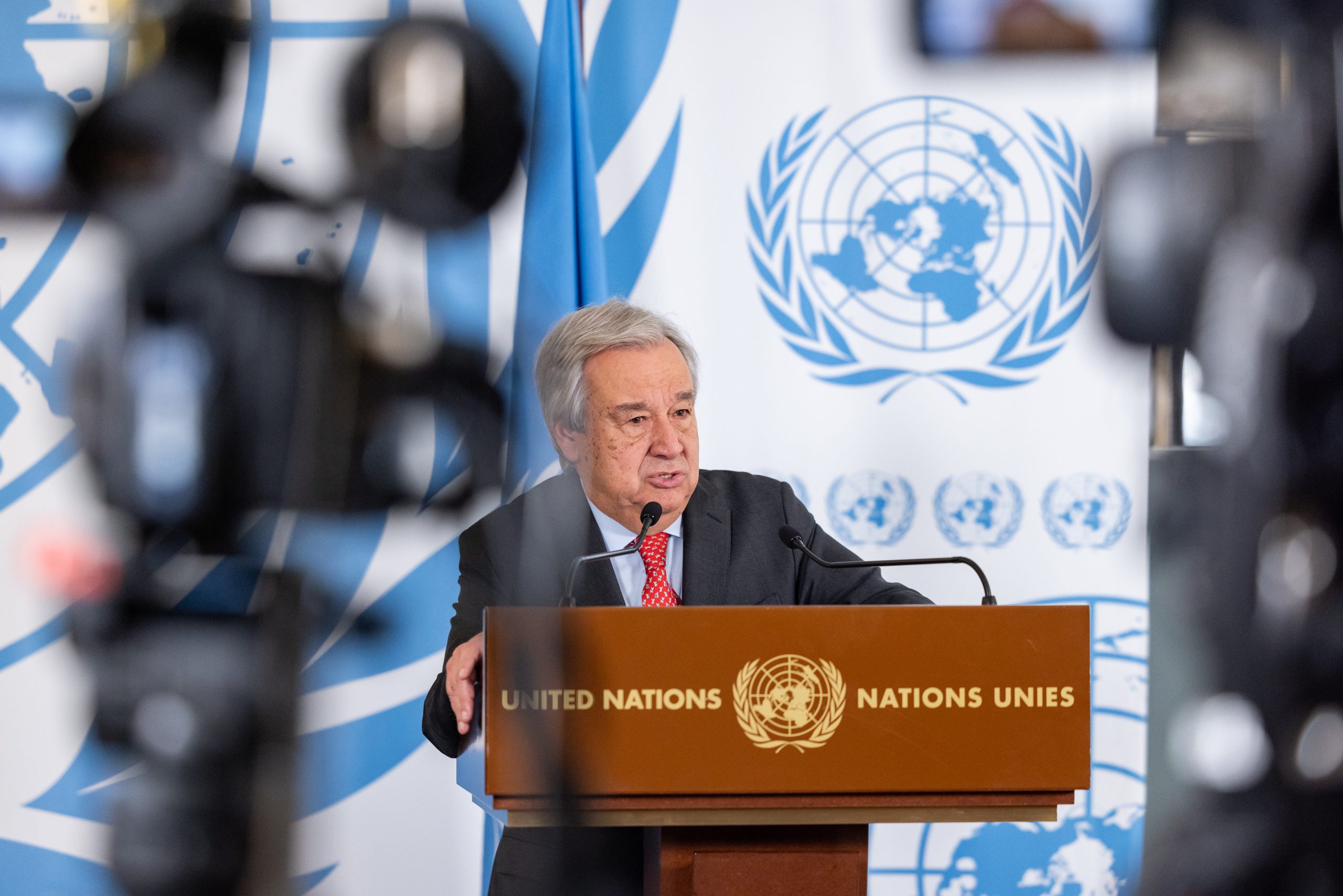On 16 September 2025, the UN Secretary-General published his report revising his earlier proposal for the UN’s 2026 budget (known as ‘Revised estimates’ report). This revised budget reflects the Secretary-General’s objectives to achieve efficiencies under his ongoing UN80 Initiative reform process, launched in March 2025 to make the UN more ‘effective, cost-efficient and responsive’ in a context of financial crisis.
ISHR has carefully analysed the revised budget and is deeply concerned about proposed cuts to an already chronically under-resourced human rights pillar. While demands on the human rights system do not cease to grow to address mounting global conflicts and crises, further cuts will significantly reduce effectiveness and efficiency, and its capacity to deliver on human rights protection to individuals and populations on the ground.
In recent years, a liquidity crisis fuelled by the late or non-payments of dues by the US and China had already prompted High Commissioner for Human Rights Volker Türk to suspend the delivery of reports, workshops and other activities mandated by the Human Rights Council (HRC). The HRC has also reduced the length of its sessions, limiting space for States, experts and civil society to address some of the world’s most pressing rights issues and crises.
Additional cuts to the human rights pillar would further undermine the ability of the UN’s human rights bodies to continue to investigate atrocity crimes such as in Gaza, Myanmar and the Democratic Republic of Congo, to support victims and human rights defenders, to assist States in improving their human rights policies, and to develop global human rights standards that protect us all.
UN Secretary-General Antonio Guterres stressed the cuts are ‘carefully calibrated’ and ensure balance between the UN’s three pillars (peace and security, development, and human rights). Yet, the proposed cuts to the budget of the Office of the High Commissioner for Human Rights (OHCHR) of around 15% run much deeper than the 2026 proposed budget on development (targeted for around 12% cut) and peace and security (targeted for a 13% cut, excluding peacekeeping operations).
ISHR is campaigning for the UN80 Initiative to be more than a simple accounting overhaul for the UN, centred only on cost-cutting. On 21 July, ISHR and 16 civil society organisations signed an open letter to the Secretary-General and High Commissioner Türk with concrete recommendations and proposals to ensure that the UN human rights system is streamlined, strengthened and sustainable, guided by the aim of supporting human rights defenders, providing justice to victims and ensuring accountability for rights abuses.
The cuts will next be reviewed by a UN budgetary committee traditionally hostile to human rights funding, whose conclusions will serve as a basis for States to negotiate.
ISHR urges all States to:
- reverse proposed cuts to OHCHR’s budget, and
- ensure the human rights pillar is not disproportionately targeted by budget cuts, but adequately funded to implement its mandate, including through the UN’s regular budget and voluntary donations.
***
Background information:
On 12 March 2025, Secretary-General Antonio Guterres launched the UN80 Initiative coinciding with the organisation’s 80th anniversary. The primary aim of the Initiative stated by the Secretary-General is to be ‘more efficient, to simplify procedures, eliminate overlaps and enhance transparency and accountability.’ However, the initiative is also linked to the UN’s ongoing liquidity crisis, driven by Member States’ continued failure to meet their financial obligations in full and on time over the past seven years.
Under the UN80 Initiative, an internal Task Force has been appointed to develop concrete proposals around three workstreams: (1) identify efficiencies and improvements in the work of the UN ; (2) review the implementation of all mandates; and, (3) do a strategic review of structural changes and programme realignment in the UN System. The Secretary-General established seven UN80 clusters tasked with presenting recommendations across the three workstreams. The Human Rights Cluster is led by High Commissioner for Human Rights Volker Türk.
The UN Secretariat’s proposals under workstream 1, seeking ‘efficiencies’, are incorporated into the abovementioned revised estimates for the 2026 Programme Budget. The latter is likely to be further reviewed in the future to reflect proposals emerging from discussions in the next months among States on mandate implementation, co-facilitated by Jamaica and New Zealand, under workstream 2, and from the Secretary-General’s initial proposals on programme realignment expected for later this week, on the basis of proposals by the seven UN80 Clusters, under workstream 3.
The revised estimates report shielded from budget reductions select UN entities on Palestinian and other refugees, international cooperation for development, including regional commissions, and development support to the Least Developed Countries, and Africa’s development goals, as well as the International Court of Justice. Human rights bodies affected by reductions other than OHCHR include investigative mechanisms on Myanmar (14-15%) and Syria (14-16%), the UN’s mechanism for missing persons in Syria (15-17%), and UN Women (15%).
The current revised estimates budget was communicated to the Advisory Committee on Administrative and Budgetary Questions (ACABQ) on Monday. The ACABQ, a subsidiary organ advising the General Assembly, will review the proposals before forwarding its recommendations to the General Assembly’s Fifth Committee, where all 193 Member States decide on administrative and budget matters.
Additional or more substantive changes related to workstreams 2 and 3 requiring further analysis may also be incorporated into the Proposed Programme Budget for 2027. The UN Secretary General is expected to present a final report with reform proposals the last week of September 2025 at the United Nations General Assembly High Level Week in New York.

